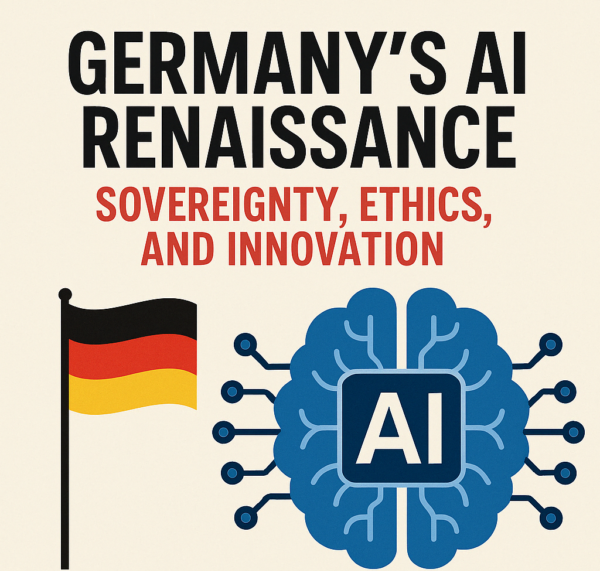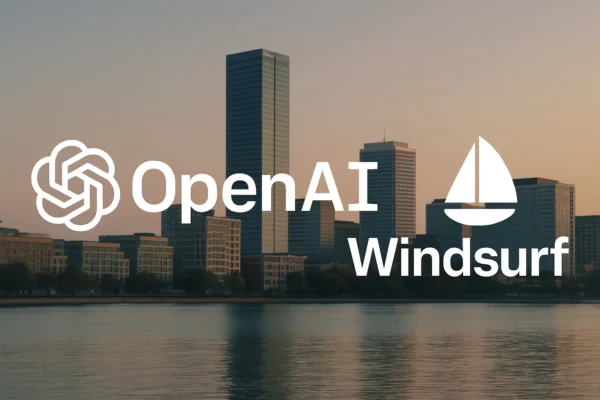
Germany’s AI strategy blends innovation, ethics, and sovereignty—explore key investments, new models, and what’s driving its AI ecosystem in 2025.
Germany is undergoing a powerful AI transformation, with strategic investments, innovative models, and a strong commitment to ethical development. As a global player in the AI race, Germany is building an ecosystem that prioritizes AI sovereignty, research excellence, and responsible practices. This piece delves into Germany’s AI strategy, key innovations, and the ethical framework that guides this journey. Let’s break it down.
Germany’s National AI Strategy: A Blueprint for the Future
Germany’s AI strategy is designed to position the country as a global leader in AI, with a focus on innovation, ethical development, and AI sovereignty. The Federal Ministry for Education and Research (BMBF) has pledged over €6 billion to AI projects by 2025, focusing on research, infrastructure, and AI adoption by small and medium-sized businesses. This funding aims to create a robust AI ecosystem across industries.
In addition to this, Germany is strengthening its digital infrastructure. Major players like Microsoft have committed over €3.2 billion to expand cloud and AI infrastructure in the country, doubling its capacity and enhancing digital skills across the population. This commitment is key to supporting AI research and ensuring that Germany remains at the forefront of AI development.
Germany’s strategy also aligns with the European Union’s InvestAI initiative, which seeks to mobilize €200 billion in AI investments, including €20 billion dedicated to AI gigafactories. This move emphasizes Europe’s ambition to compete with global AI leaders, like the U.S. and China, by focusing on homegrown AI capabilities and infrastructure.
Innovative AI Models: Germany’s Contributions to the Global AI Landscape
Germany is not only a consumer of AI but also a major creator of cutting-edge AI models that have global implications.
Luminous by Aleph Alpha: A multilingual, explainable large language model (LLM) from Aleph Alpha in Heidelberg. Luminous offers transparency and explainability, which are rare in the AI field. Its emphasis on AI explainability sets it apart, aiming to give clear insights into how AI decisions are made.
Flux by Black Forest Labs: A text-to-image model from Freiburg-based Black Forest Labs, Flux generates high-quality images from natural language descriptions. This innovation puts Germany on the map in generative AI, rivaling models like OpenAI’s DALL·E.
GottBERT: A German-language adaptation of the RoBERTa model, designed for tasks like Named Entity Recognition (NER) and text classification. GottBERT is optimized for the German language and plays a critical role in processing and understanding local texts and datasets.
FhGenie: Developed by the Fraunhofer-Gesellschaft, FhGenie is an AI-powered chatbot that facilitates secure internal communication, ensuring compliance with GDPR while providing useful insights from sensitive data. This highlights Germany’s unique blend of innovation with privacy and security.
Ethical AI and Regulatory Frameworks: Balancing Innovation with Trust
Germany places a high premium on ethical AI development. The country’s ethical AI frameworks are designed to ensure that AI is developed and deployed in ways that are responsible, transparent, and in alignment with human rights. The German Institute for Standardization (DIN) has created a Standardization Roadmap for AI, focusing on transparency, safety, and reliability in AI systems.
In addition to this, Germany’s AI ethics guidelines align with the European Union’s broader GDPR and AI Act. These guidelines prioritize ensuring that AI systems are both explainable and ethical, offering a framework for businesses and developers to create AI that is trustworthy and respects privacy. Germany’s emphasis on AI ethics and data protection is integral to its broader national AI strategy.
Germany’s Path to AI Sovereignty
Germany’s AI future is not just about technological advancements but about ensuring that it remains a competitive force in global AI development. This focus on AI sovereignty is particularly important as the country aims to reduce its reliance on foreign AI models, ensuring that Europe has full control over the AI technologies that shape its economy and society.
Alongside Microsoft’s investment and EU initiatives, Germany is investing in high-performance computing (HPC) facilities, data centers, and other key infrastructure elements. These efforts are designed to help Germany build and host its own AI models while staying ahead of the curve in AI governance and data security.
Germany’s approach to AI is multi-faceted and forward-thinking. With strategic investments in infrastructure, ethical AI development, and groundbreaking models like Luminous and Flux, Germany is not only contributing to the global AI landscape but also ensuring that its AI systems are developed in a responsible and transparent manner. For aspiring AI professionals, business leaders, and policymakers, Germany offers a valuable example of how to balance innovation with ethics and sovereignty in the rapidly evolving world of artificial intelligence.






